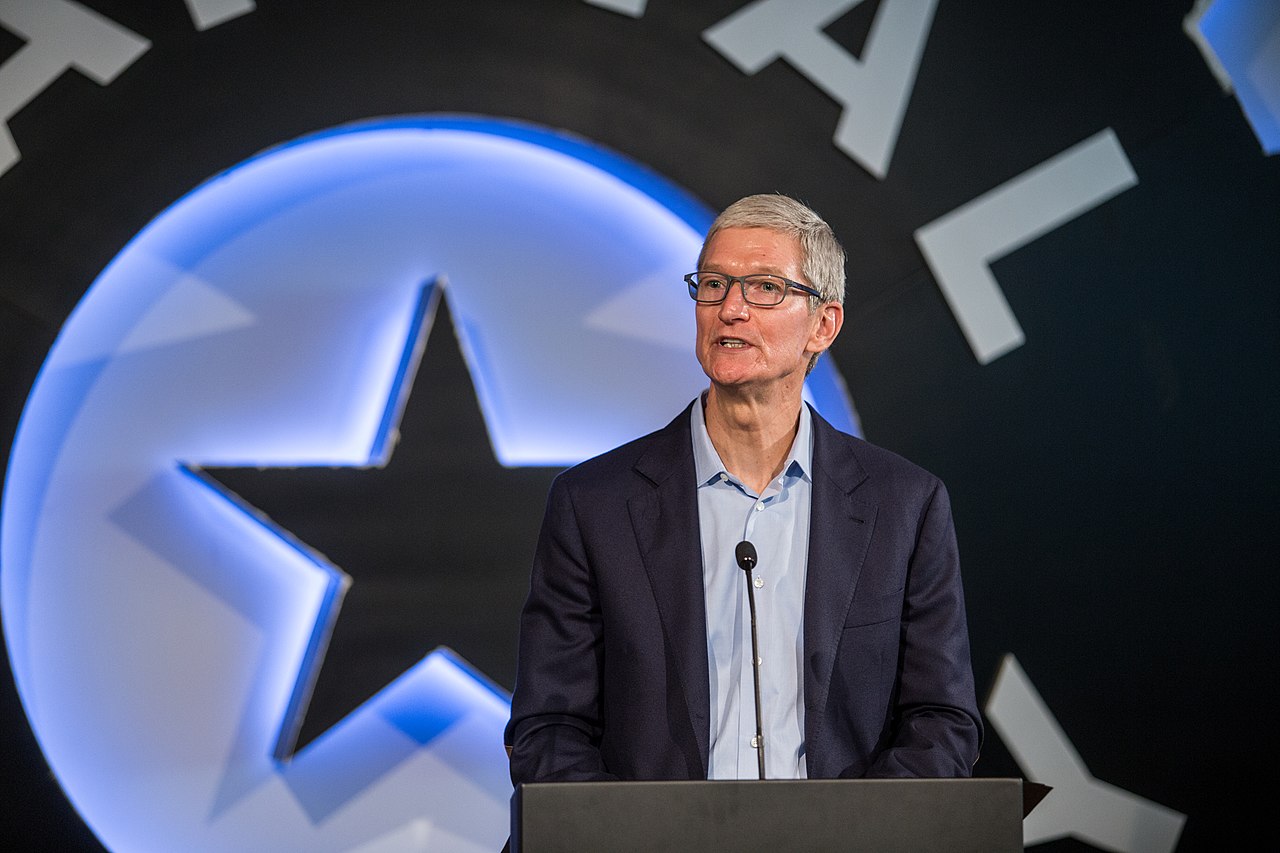In honour of Pride Month, CEO Today examines the careers of LGBT+ CEOs and executives who now rank among the most powerful business leaders in the world.
Progress towards LGBT+ inclusion has been made across the corporate world, with 686 businesses achieving a perfect 100 on the Human Rights Campaign’s Corporate Equality Index in 2020 – more than double the 305 recorded ten years ago – and the majority of Fortune 500 companies now including protections for transgender individuals in their anti-discrimination policies. These are only steps towards a truly equal world of work, but they represent a growing acknowledgement of the contributions made by LGBT+ people in all industries.
Despite this, it’s no secret that boardrooms are still disproportionately skewed white, male and heterosexual. This represents a clear problem for big business. The lack of adequate representation of LGBT+ people at a leadership level is emerging as the biggest barrier to equality in the world’s largest companies, speaking to the unrecognised talents of the many LGBT+ individuals that these companies employ. When these talents are allowed to flourish, however, some of the greatest leaders in business have emerged.
Below, we look at the careers of some of those LGBT+ business leaders who have used their skills to both achieve business success and further the cause of LGBT+ representation in the corporate space.
Tim Cook
Having initially joined Apple in 1998 as Senior Vice President of Worldwide Operations, Tim Cook’s career is a catalogue of successes. While Apple was struggling to remain afloat at the time of his joining, its fortunes quickly turned; within a year the company began to register profits, and the rest is history.
Cook rose to the position of chief operating officer in 2007 and is credited with having successfully overhauling the tech giant’s inventory and outgoing expenses. He later filled the role of chief executive while Steve Jobs’ health forced him to take frequent leaves of absence, and was eventually confirmed to the role in 2011. He has since achieved a great deal during his tenure as CEO, overseeing the landmark $3 billion acquisition of Beats Music and Beats Electronics in 2014 and cementing Apple’s position as a computer and smartphone giant.
[ymal]
Though he had always been open about his sexuality in his private life, Cook’s coming out publicly in 2014 cemented him as the first openly gay person on the Fortune 500 list and one of the most well-known sources of inspiration for LGBT+ individuals worldwide.
“If hearing that the CEO of Apple is gay can help someone struggling to come to terms with who he or she is, or bring comfort to anyone who feels alone, or inspire people to insist on their equality, then it’s worth the trade-off with my own privacy,” he wrote in his coming-out essay.
Inga Beale
Inga Beale is a globally renowned figure in the insurance industry, her historical successes coming on the back of a long and diligent career. First spending 14 years as an underwriter for Prudential Assurance Company in London, then ascending through leadership positions in General Electric Insurance Solutions and a range of other companies, her rise eventually led her to become the CEO of Lloyd’s of London in 2013 – the first woman to hold that position in the company’s 327-year history.
Beale, who is also openly bisexual, then spearheaded the modernisation and digitisation of Loyd’s and oversaw the implementation of new LGBT+ friendly policies, including an internal LGBT+ employee-resource group (Pride@Lloyd’s). In 2015 she became the first woman and openly bisexual person to reach number one on the OUTstanding & Financial Times Leading LGBT executive power list after receiving nominations from her peers. On top of all of these achievements, in 2017 she was named Dame Commander of the Order of the British Empire by the Queen in recognition of her activism and services to the economy.
Beale stepped down from the CEO position in 2017 and has continued to fight for greater diversity and inclusion. In an interview with Finance Magnates, Beale spoke positively about global progress in advancing LGBT+ rights, but urged vigilance.
“Legislation for equality and anti-discrimination policies have been introduced in many countries but there is still more to be done,” she said. “We must not become complacent as it is easy for progressive enhancements to human rights to be taken away at the whim of those in power.”
“Legislation for equality and anti-discrimination policies have been introduced in many countries but there is still more to be done."
Jim Fitterling
Unlike most CEOs, Jim Fitterling is a “lifer”: someone who has spent their whole career at a single organisation. In Fitterling’s case, this is the Dow Chemical Company, where he has worked since graduating from the University of Missouri-Columbia with a degree in mechanical engineering. He is also openly gay, though he spent the first thirty years of his now thirty-five year career closeted.
Inspired by Tim Cook’s example, Fitterling came out to Dow about his orientation on World Coming Out Day 2014 and continued his decades-long ascent through the company ranks, eventually being named its COO and president in 2016 and finally its CEO in 2019. This final role cemented him as the third openly LGBT+ CEO of a Fortune 500 company and, more significantly, the first board-appointed “out” CEO of a Fortune 100 company. Dow materials credit him as playing “a key role in the Company’s transformation” into a higher-growth business that reported sales revenue of $43 billion in 2019.
Alongside his business success, Fitterling has continually acted in support of LGBT+ recognition. Within Dow itself he has encouraged employees to feel comfortable in sharing their sexual orientation and pushed to appoint the company’s first Chief Inclusion Officer. In 2018 he defied critics by flying a rainbow flag outside Dow’s Missouri headquarters, and went on to top FT’s OUTstanding list and join Out Leadershp’s Global Advisory Board.
FItterling also shares Beale’s cautious optimism about the state of LGBT+ corporate representation. “Even though we’ve made a tremendous amount of progress, 50% of LGBT+ people in the United States are not out at work,” he remarked in an interview. Characterising insufficient LGBT+ inclusion as a “business performance issue”, Fitterling has sought at every step to correct it in his own business and elsewhere.
"Even though we’ve made a tremendous amount of progress, 50% of LGBT+ people in the United States are not out at work."
Martine Rothblatt
Martine Rothblatt was on the verge of retiring in 1996. She had already made a fortune in launching satellite communications start-ups, including satellite radio service Sirius, which went on to be valued at $6 billion. However, when her youngest daughter was diagnosed with pulmonary hypertension, Rothblatt abruptly changed her field from space law, pioneering the pharmaceutical company United Therapeutics. Under Rothblatt, the company spent a decade developing and gaining FDA approval for the drug Orenitram, which could treat pulmonary hypertension. The company has since developed further drugs and reached a market cap of over $4 billion.
This is to only scratch the surface of Rothblatt’s career, much of which she accomplished after transitioning in 1994, having identified as female all her life. “Everyone was very kind and understanding,” she later said of her experience in coming out about her gender identity. “I simply told everyone that I worked with that I was going to transition in a couple weeks, and I’d be Martine instead of Martin.”
Since transitioning, the list of Rothblatt’s accomplishments has only grown longer. From becoming the US’s highest-earning female CEO (transgendered or cisgendered); to founding a religion and being elected a Member of the American Philosophical Society; to inaugurating the “Unisphere” – the world’s largest net-zero office building – Martine Rothblatt has reached too many milestones to summarise. With her rising success came recognition among her peers, with Forbes naming her as one of the 100 greatest living business minds of the past century and a number of universities awarding her honorary doctorates for her contributions to medicine and the sciences.
Rothblatt is also an outspoken advocate of LGBT+ rights, and, as with Jim Fitterling, she recognises that businesspeople are greater achievers when they do not have to keep their identities hidden. “I feel that more than half of my creativity was unleashed when I didn’t have to spend like 90% of my energy pretending I was male.”











